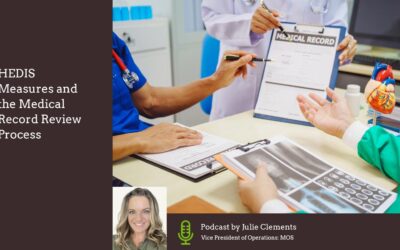Hope you’ve listened to our previous podcast that discussed the tips on how to organize medical records for a personal injury claim. Here’s the continuation of the same. MOS is an experienced hand in providing medical records organization services for law firms. When the records are well-organized, attorneys can easily collect relevant medical facts related to the case.
Podcast Highlights
00:00 More Steps to Organize Medical Records for a Personal Injury Claim
01:33 Common Mistakes to Avoid When Organizing Medical Records
Steps to Organize Records for Personal Injury Claim Part 2
Read Transcript
Next Episode of the Podcast
00:00 More Steps to Organize Medical Records for a Personal Injury Claim
- Keep the records in chronological order: Arrange the records in chronological order, starting from the initial injury and continuing through each medical visit or treatment. This will help provide a clear timeline of the medical treatment and recovery.
- Label each record: Label each record with a brief description of what it contains and the date it was received or generated. For example, you might label a record “MRI Results” or “Physical Therapy Notes.” This will make it easier to find the records you need when you need them.
- Include contact information: Make sure to include contact information for each healthcare provider, including their name, address, phone number, and any other relevant details. Being an attorney, this information may be necessary to request additional records or contact the providers for clarification.
- Organize by category: Consider organizing the medical records by category, such as diagnostic tests, treatment plans, surgery records etc. This categorization can help you to quickly locate specific information, while handling the case.
- Maintain an ongoing record: As the claimant continues to receive medical treatment and gather additional records, be diligent in adding them to the organized system. Keeping a comprehensive and up-to-date record will support the progress of the claim.
By following these steps and organizing medical records systematically, law firms will have a comprehensive and well-structured set of documents to support the personal injury case they are handling.
01:33 Common Mistakes to Avoid When Organizing Medical Records
- Failing to obtain all the records
Make sure to obtain records from all healthcare providers, including primary care physicians, specialists, hospitals, and physical therapists. Failing to obtain all relevant records can weaken the case and make it more difficult to prove the extent of the injuries.
- Failing to organize the records
This can make it difficult to find the information needed. Make sure to organize the records in a way that’s easy to navigate and understand.
- Failing to keep track of medical bills and expenses
This can make it hard to prove the costs associated with the claimant’s medical care. Make sure to keep a log of all of the bills and save all of the receipts.
Remember to consult an experienced medical record review company to get the medical records properly organized and thus strengthen your claim.
Thank you for listening!



